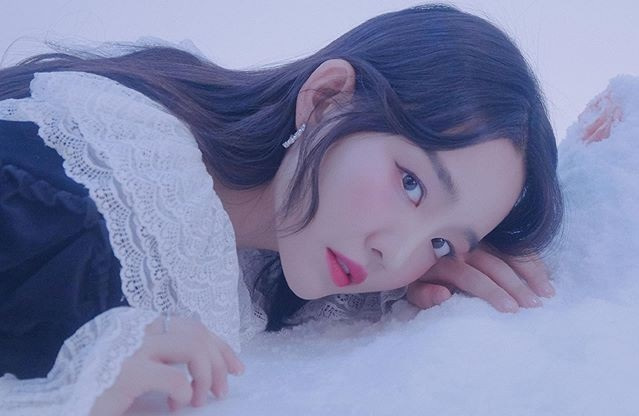The ballad; though still the perfect palate to express nostalgia to many, and a genre of arguably very social importance in everyday Korean life, it is gradually, conceivably, losing its touch with K-pop consumers with each decade. On the surface, who can blame them? K-pop continues to expand its definition, being not just about the music itself, but also dance, fashion, music videos, personas, its social media impact — the list can go on. Though in the background of it all, still living in the same neighbourhood as where it was conceived, or perhaps in the basement of a rich family’s home, the Korean ballad has stayed the course. Kind of like Geun Sae in Parasite…okay, not that grim.
Slow tempo. Sparse instrumentation. Lyrics of both love and heartbreak. Is it that simple though? Can the Korean ballad actually be summed up into three points? Short answer … no chance.
This series will feature reviews of current ballads in Korean popular music, both by ‘ballad singers’ and idols alike. However, with each review, I hope to help analyze what makes a ballad ‘good’ or ‘bad’, slowly explore the impact the ballad has on today’s Korean society, how it has evolved over the years, and maybe, just maybe, convince an internet audience that though simple in formula, Korean ballads are not just the “cream of the crop” amongst its international counterpoints, but that it may, in fact, be the hidden gem in the overarching K-pop genre today.
——
First up: “Dark Cloud” by Younha. From her latest EP, Unstable Mindset, Younha gives us a great example of why ballads can be so appealing, even in today’s day and age.
There are many elements to what makes a ‘beautiful’ ballad ‘beautiful,’ but perhaps the one that the average listener would deem most important is the melody.
Starting off softly, the first verse in Younha’s “Dark Cloud” implements a common, yet strong, melodic technique in the vocal line: repetition. If it ain’t broke don’t fix it, am I right? The repetition of the vocal melody can best be analyzed and appreciated alongside its relationship with the accompanying guitar and the lyrics being sung. There’s what we (music academics) call “similar motion” between the vocal line and the accompanying guitar, meaning that, though not perfectly, both the guitar and Younha’s vocal melody gradually descend until they resolve to the next chord. This is an excellent technique, especially for a ballad, as it creates the impression that things are literally ‘falling down’, which is even more incredible, given the lyrics of the first half of this verse:
“I’m doing well, I haven’t even skipped meals. It’s just that time has stopped, so I don’t even try to get over you.”
The first two lines of lyrics are quite hopeful and positive. However, it is a bit unusual to sing those words with the descending melody that it’s presented with. In other words, it wouldn’t be a stretch to interpret these lyrics as ‘rising up’ in its content, which is a deliberate contrast to the music behind it. If we’re getting super nerdy (let’s do it), this can be described as “contrary motion”; when things move in opposite directions. It is a false sense of hope, in the end, as the lyrical content in the two lines that follow begin to descend, imitating its musical accompaniment. It turns out our suspicions are confirmed. As the real meaning of the lyrics begin to unravel, it solidifies the feeling of things ‘falling down’ when we realize it’s a song about love loss. Typical. Most ballads are typical. Most pop songs, period, are typical. So, it’s important to acknowledge and understand the smaller details which, usually, turn out to be the big reasons a song becomes successful or not.
Much of the same techniques are used, with some variation, until we get to the chorus. The chorus’s job is to give us the main hook. We should be humming or singing that chorus hook immediately after the song is done. In my opinion, “Dark Cloud” accomplishes that very mission. Again, what do we hear? Repetition! Similarly written to Taylor Swift’s “Back To December”, not only is the chorus melody repetitive in its notes, but also in its phrasing. This is just one other successful method DOKO (credited as the composer) does to make sure the audience doesn’t forget it.
Following generic constructs of a popular music ballad, the bridge in “Dark Cloud” acts as a build-up to what will be a thunderous climax in the final chorus of the song. Younha shows off her incredible vocal abilities during the bridge with a lyric that best illustrates the entire song:
“I’m here all alone, acting like I’m fine, but crying my eyes out.”
Ahhh. You know what that sound is? That’s the sound of drinking a refreshing can of Amazing Songwriting & Beautiful Execution. Strange name for a beverage, yes, but does it ever taste good!
I usually like my drink with a little snack. Luckily for me, Younha delivers the goods once again with the hard-hitting final chorus we were expecting this whole time. Sure, it was predictable, but this is what we signed up for when we pressed play in the first place. We can’t argue about that, but what we can do is appreciate a well-written song, another wonderful performance and release by Younha, and the freedom to re-play it and enjoy it all over again as many times as we’d like.
======
IATFB’s Note: Please welcome one of the new ballad writers!
 Asian Junkie Asian pop. Without discretion.
Asian Junkie Asian pop. Without discretion.
